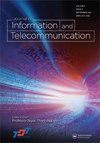Prediction of user loyalty in mobile applications using deep contextualized word representations
IF 1.7
Q2 COMPUTER SCIENCE, INFORMATION SYSTEMS
Journal of Information and Telecommunication
Pub Date : 2021-10-01
DOI:10.1080/24751839.2021.1981684
引用次数: 3
Abstract
ABSTRACT Customer loyalty is important for many industries, including banking, telecommunications, gaming, and shopping, in terms of sustainability. In mobile applications, it is observed that the demand rises with the usage of mobile devices such as smartphones. Therefore, it is important to predict when players tend to leave an application. Most of the studies so far focus on churn prediction or customer loyalty in mobile applications by analyzing demographic, economic, and behavioral data about customers. In this work, we introduce sentiment analysis-based customer loyalty prediction in mobile applications using word embeddings, deep learning algorithms, and deep contextualized word representations. To our knowledge, this is the first study to evaluate loyalty of customers analyzing sentiments of users from their comments using deep learning, word embedding, and deep contextualized word representation models. For this purpose, CNNs, RNNs, LSTMs, BERT, MBERT, DistilBERT, RoBERT are used for classification purpose. On the other hand, word embedding models such as Word2Vec, GloVe, and FastText are employed for text representation. To demonstrate the impact of proposed model, comprehensive experiments are performed on seven different datasets. The experiment results show sentiment analysis of users in mobile applications can be a powerful indicator in terms of predicting customer loyalty.使用深度语境化词表示预测移动应用程序中的用户忠诚度
客户忠诚度对于包括银行、电信、游戏和购物在内的许多行业的可持续性都很重要。在移动应用程序中,可以观察到需求随着智能手机等移动设备的使用而上升。因此,预测玩家何时会离开应用程序非常重要。到目前为止,大多数研究都是通过分析用户的人口统计、经济和行为数据来关注手机应用的流失预测或用户忠诚度。在这项工作中,我们使用词嵌入、深度学习算法和深度上下文化词表示,在移动应用程序中引入基于情感分析的客户忠诚度预测。据我们所知,这是第一个评估客户忠诚度的研究,该研究使用深度学习、词嵌入和深度语境化词表示模型,从用户的评论中分析用户的情绪。为此,使用cnn、rnn、LSTMs、BERT、MBERT、DistilBERT、RoBERT进行分类。另一方面,使用Word2Vec、GloVe和FastText等词嵌入模型进行文本表示。为了验证所提出的模型的影响,在七个不同的数据集上进行了综合实验。实验结果表明,移动应用中用户情绪分析可以作为预测用户忠诚度的有力指标。
本文章由计算机程序翻译,如有差异,请以英文原文为准。
求助全文
约1分钟内获得全文
求助全文
来源期刊
CiteScore
7.50
自引率
0.00%
发文量
18
审稿时长
27 weeks

 求助内容:
求助内容: 应助结果提醒方式:
应助结果提醒方式:


